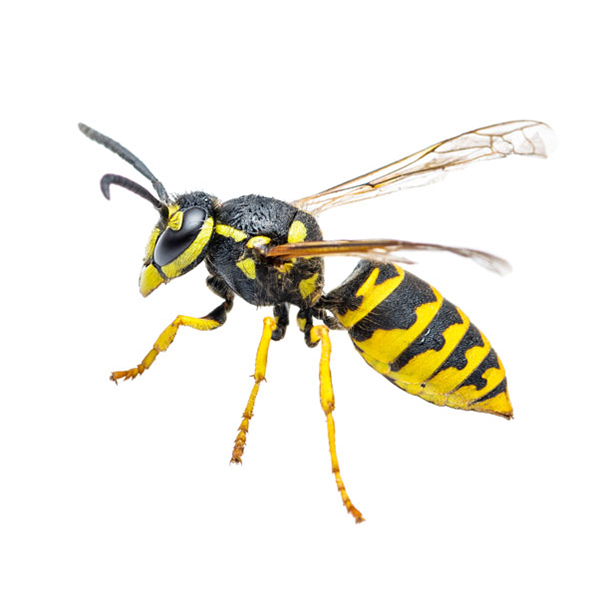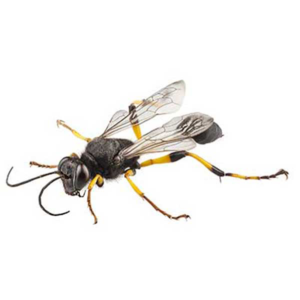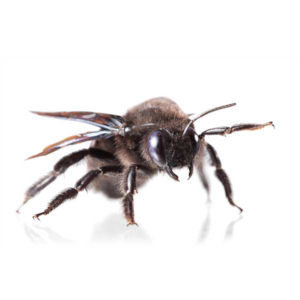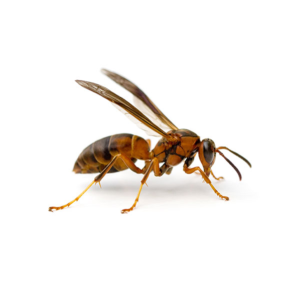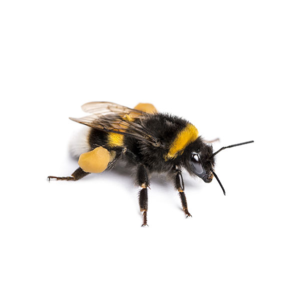Yellowjackets in North Jersey
Yellowjackets are one of the most notorious wasps in the United States – including here in North Jersey. Though they are beneficial wasps that can have a positive impact on the local environment, yellowjackets can still pose a threat to humans thanks to their habit of building nests near our homes or buildings. Particularly in the late summer and fall, yellowjackets can also become aggressive and are more likely to sting when searching for food. They primarily feed on fruit juices, soft-bodied insects like caterpillars and flies, and protein-rich meat products.
Yellowjacket Habitat
Some yellowjackets build their nests in the ground, while others burrow in old rodent dens and upper levels of homes or buildings. Above-ground nests are usually located in leafy branches, attics, or roof eaves. In some cases, they may also build a nest on the side of a building, in wall voids, or on playground equipment. Yellowjacket nests look papery and have an entrance hole located at the bottom. These pests are also most active during the warm season, though they can become quite aggressive once temperatures drop in the fall because food becomes scarcer.
Yellowjacket Behaviors, Threats, or Dangers
Though yellowjackets are not as aggressive as some other species of wasps, they are still capable of delivering multiple painful stings at once. Because their stinger is not barbed like that of a honeybee, it can sting repeatedly without dying. If you incur a lot of stings or have a bee allergy, it’s important to seek immediate medical attention.
Discovering wasps near your home or business is never pleasant – especially if you have young children who may be at a higher risk of getting stung while playing outdoors. If you notice a nest or a large number of wasps on your property, it’s best to get in touch with a licensed wasp removal expert for help. Attempting to treat the infestation on your own could result in serious injury. A licensed professional will have advanced tools and expertise to safely remove the wasps and prevent them from returning to your space.

